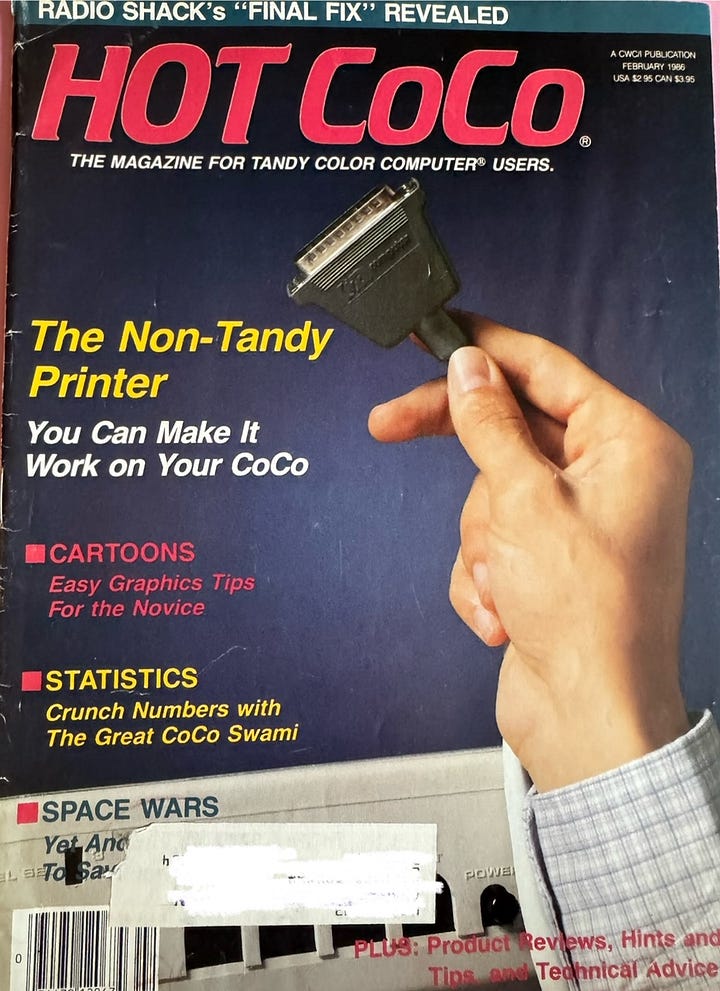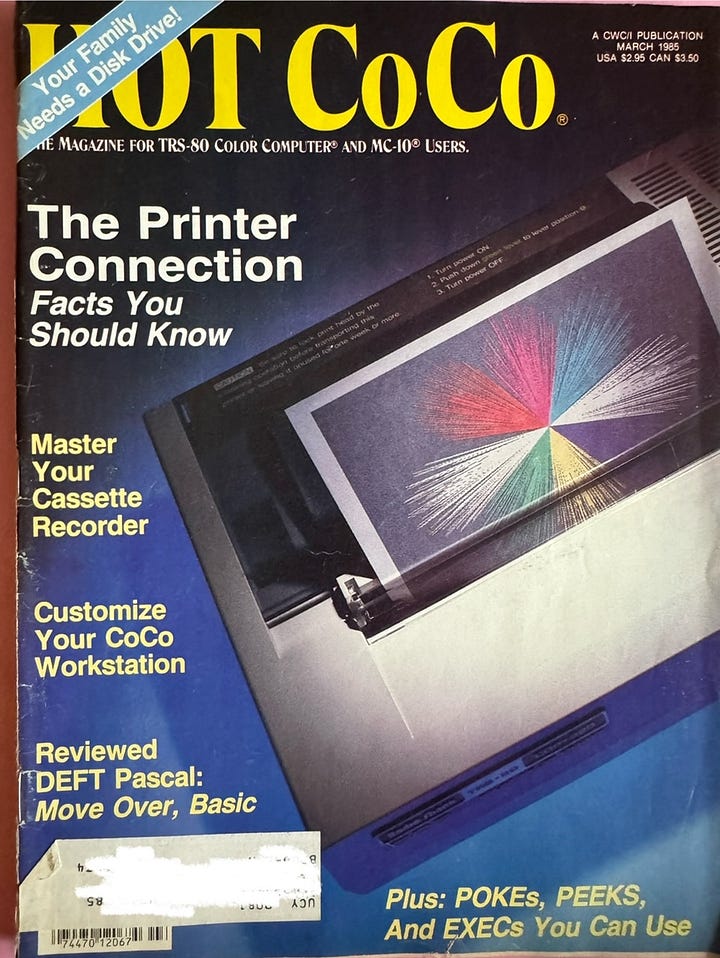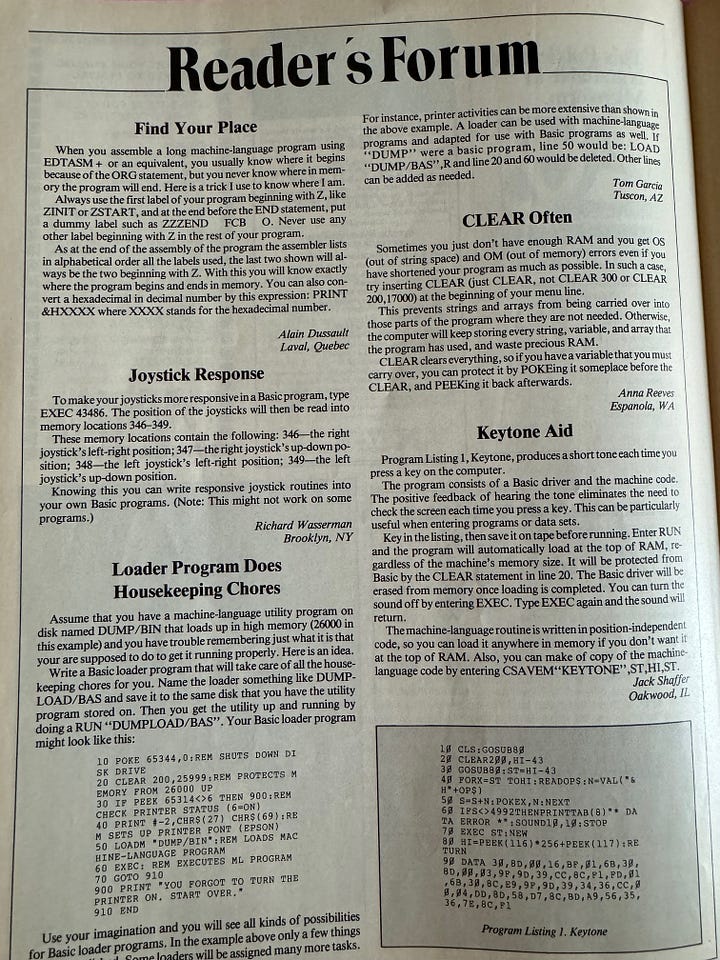No matter where you go, there you are
Yes, it's another substack. Some background on the author and why it might be worth your time.




I’ve been thinking for a while about trying to write some sort of book. A “practical memoir” that combined “fun” stories from a solid 30+ years working and living alongside “useful” learnings that you could apply to further your own career (or just improve your rate of getting useful stuff done). It would give the reader some pragmatic tools honed through my painfully earned (read “often stupid”) experiences while indulging a desire share some formative experiences while I still remember them.
But … it turns out I’m lazy, daunted by the challenge of biting off a whole “book” and somewhat insecure as to whether there’s really an interest in this. So I decided to take the advice I’d give someone else and ask “is there a way you could do some of the work up front get some more data on those concerns before you go all in?” And that’s how we got here.
The rest of this first post is intended to help you decide if you’d like to spend the attention to follow along for now. First, here’s a list of a few of the topics I’m thinking of writing about over time grouped by topic. My current plan is to share something every 2-4 weeks or so. With some smaller stuff in-between.
Some practical tips for improving the use of common systems/problems
Goal setting, Vision and OKR’s
Simpler is often better than “correct”: The multiplier power of alignment
A short guide to reading minds
Organizations and people
The most important goal: Getting people to tell each other they’re wrong
Teams, pod, reorgs … oh my! (multi-discipline teams and effective inclusiveness)
Tenets - why they have nothing to do with Christopher Nolan but yet still matter
Prioritization: The final frontier
Making your meetings longer for happiness and increased velocity
Why you don’t really want to be a manager. No, really!
The enlightened art of (not) botching everything, everywhere all at once.
Murphy was an optimist imho: Monitoring the heck out of stuff without overthinking it.
Not being wrong for long: Tripwires and defense in depth
Be wrong in original ways: Postmortems - fix the problem, not the blame
Yeah - you still don’t really “know.” The power of gamedays.
Bringing it all together: Don’t trust The Force: How operational excellence and a culture of trust could have saved The Empire (warning: Star Wars geekdom ahead)
Random product, engineering and data science stuff - that may apply to other things too
Benny Hill was right at least once: Never … ever … assume.
Death to presentations: Clear writing is clear thinking
Working backward (a 100x better idea than walking backward)
Meditations on "tech debt"
Don’t plan on predicting the future - yes, people keep trying to for some reason.
A overly brief history of Agile and why Kanban is the way
“How to provide an update” - and why it’s useful even if you think they’re dumb
The “James Email”: Magic tricks for driving the large annoying organizational slogs
Dealing with the most terrifying words in engineering - “we’re from the Platform Team and we’re here to help.”
Story time
The call to China about ping-pong paddles: How to recognize a phenom team member among the merely great ones (Amazon)
Getting product to champion your infra project: aka Solving for 20+ years of an overly optimistic view of “database” through listening and goal alignment (IMDb)
Don’t experiment (on everything) (Convoy)
“Onboard the new guy slower” - why focus should trump everything (Convoy)
Order defect rate: The one goal to rule them all (Amazon). Also - how directionally right but technically “wrong” is often the best solution.
Getting “that one annoying thing the engineers want to do” to the top of the priority list (Amazon). The jedi mind trick is understanding everyone’s goals.
Moving fast: Sometimes you’ve got to say what the F#$dk (Mitutoyo)
Oh, you knew that didn’t work?: Why not assuming can save you a trip to Japan. (Mitutoyo)
Doing the “dumb” thing can be the smartest move: The online ticketing story (IMDb)
Making the wrong thing more likely: How not to set goals. (Facebook)
You have too many “goals”. It’s always only 3-4 things, likely just one. (Stitchfix)
The $1B meeting reset (Amazon)
Double Secret Probation: Co-designing a process and system, plus an epic naming fail (Amazon)
Many more to come…
More on who’s proposing to write all this stuff…
In terms of “official” credentials … I’ve got a PhD in Electrical engineering, 20 years of people management, and broad domain experience (ranging across electronics system design, industrial measurement, large scale software enterprise systems, marketplaces, risk-management/trust & safety, adtech, supply chain, and big movie websites. Sometimes that experience was working the core technical problems - but much of it was in “technical management.” Which largely makes me qualified to tell stories that about how a degree in Psychology or training in negotiation might have been more productive than much of my university learnings. I also like to blather on about things. So rather than getting stuck trying to write one giant memoir I thought I’d just space it out Dickens style on whatever caught my fancy. At least for a while until I possibly decide to pivot.
In terms of content - I’m thinking to share work lessons I think might be useful, tell a few stories about the good/bad old days at Amazon and perhaps muse about trying to pick up my next full-time role. In the meantime if you’d like an external view on your org’s challenges and/or a bit of help simplifying goals for focus I’d be happy to stop by.
Other qualifications? … hmmm… I may or may not have stayed at a Holiday Inn last night, but I definitely know how to make effective hand gestures].
BTW - if you’re still hungry for even more on my thinking on starting this Substack you can keep reading the stuff I cut from this post due to length.
.

